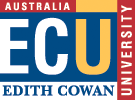COURSE INFORMATION
Disclaimer
This course information may be updated and amended immediately prior to semester. To ensure you have the correct outline, please check it again at the beginning of semester.
|
This course enables students to graduate with an advanced research knowledge and understanding in arts, communications or creative industries. Students may choose from the following discipline areas:
- Arts disciplines offered: English; History; French; Politics and International Relations; Visual Arts; Fashion and Textiles; and Writing.
- Communications disciplines offered: Advertising; Journalism; Media, Culture and Mass Communications; Public Relations.
- Creative Industries disciplines offered: Film and Video; Game Design and Culture; Photomedia; Interactive Media; Animation; Graphic Design; Environmental and Spatial Design.
The course consists of one semester of research preparation coursework, followed by three semesters of research. The research component of the course consists of the preparation of a research proposal and presentation, the conduct of research and the completion of a thesis. |
| |
ADMISSION REQUIREMENTS
- Bachelor degree in a relevant discipline;
- Bachelor degree in a different discipline with a relevant Graduate Diploma at the course coordinators discretion.
Students may be granted advanced standing depending on their previous qualifications. |
| |
COURSE LOCATION
This course is available on Mt Lawley Campus. |
| |
MODE OF STUDY
This course is available by Full-time, or Part-time mode. |
| |
MODE OF DELIVERY
This course is available in the following mode of delivery - On-campus. |
| |
COURSE STRUCTURE
The course consists of six months full-time (or part-time equivalent) taught units of study, and eighteen months full-time (or part-time equivalent) thesis.
Students are required to make satisfactory progress in the masters thesis unit. Students who do not make satisfactory progress will not be eligible to remain in the course.
Students are required to continue re-enrolling in the masters thesis unit until the thesis is submitted for examination.
|
| |
| YEAR ONE - SEMESTER 1 |
| CMM6116 |
Methods of Inquiry |
20 | | | CCA5102 |
Literature Review |
20 | | | CCA5103 |
Seminar Series |
20 | | | |
| YEAR ONE - SEMESTER 2 |
| CMM6200 |
Masters Thesis |
0 | | | |
| The research component of this program commences in this semester with the preparation of a research proposal, presentation of a proposal seminar and completion of confirmation of candidature. Work on the Thesis can commence in this semester if confirmation of candidature is completed. In each of the following two semesters, students enroll into CMM6200 at 50% or 100% of full-time enrolment. |
| |
| YEAR TWO - SEMESTER 1 |
| CMM6200 |
Masters Thesis |
0 | | | |
| Students may submit their thesis for examination at the end of this semester if they have achieved the required standard and scope for the degree. |
| |
| YEAR TWO - SEMESTER 2 |
| CMM6200 |
Masters Thesis |
0 | | | |
THESIS STRUCTURES
The following three kinds of thesis structure are available depending on the discipline of study. The structure and any weighting of components is to be determined before confirmation of candidature. All theses at Masters level must display a degree of originality, an understanding of form and a high degree of professional preparation.
1). Traditional Thesis
The thesis will normally consist of a single manuscript of no more than 60,000 words which follows the ECU Thesis Guidelines.
2). Creative Research Thesis
The thesis will normally consist of the following two components:
A creative project or production in the practice of the chosen discipline that demonstrates through practice: a substantial conceptual understanding of the discipline in its approach, the candidate’s knowledge of and original contribution to the discipline and appropriate technical excellence in the relevant skill area.
And
A written exegesis (comprising not less than 20% of the overall thesis) supporting and/or amplifying the creative project that: reflects a substantial conceptual understanding of the discipline in its approach, demonstrates the candidate’s knowledge of and original contribution to the discipline, demonstrates evidence of a thorough critical and discriminating review of the previous material in the relevant field of inquiry or creative genre or tradition, critiques relevant theoretical issues, conceptual and/or cultural context, aims and methods and includes any other matter agreed upon with the candidate’s supervisor and appropriately approved.
3. Writing Thesis
The thesis will normally consist of the following two components:
A creative project (approximately 40,000 words of prose or equivalent) in one of the following forms: a novella or part of a novel, a collection of poems, a full-length stage script, a collection of short fiction, a biographical/historical work, or other work of non-fiction.
And
A critical essay, or set of essays (approximately 10,000 words), which may involve one or more of the following in relation to the creative project: relevant theoretical issues, conceptual and/or cultural context, aims and methods, relation to other writers or writing within the genre, or any other matter agreed upon with the candidate’s supervisor and appropriately approved. |
| |
| | | |
| |
| Disability Standards for Education (Commonwealth 2005) | | | For the purposes of considering a request for Reasonable Adjustments under the Disability Standards for Education (Commonwealth 2005), inherent requirements for this subject are articulated in the Unit Description, Learning Outcomes, Graduate Attributes and Assessment Requirements of this entry. The University is dedicated to provide support to those with special requirements. Further details on the support for students with disabilities or medical conditions can be found at the Student Equity, Diversity and Disability Service website: | | http://intranet.ecu.edu.au/student/support/student-equity |
|
Last Updated - Higher Education: 15/03/2014 VET: 14/05/2014
